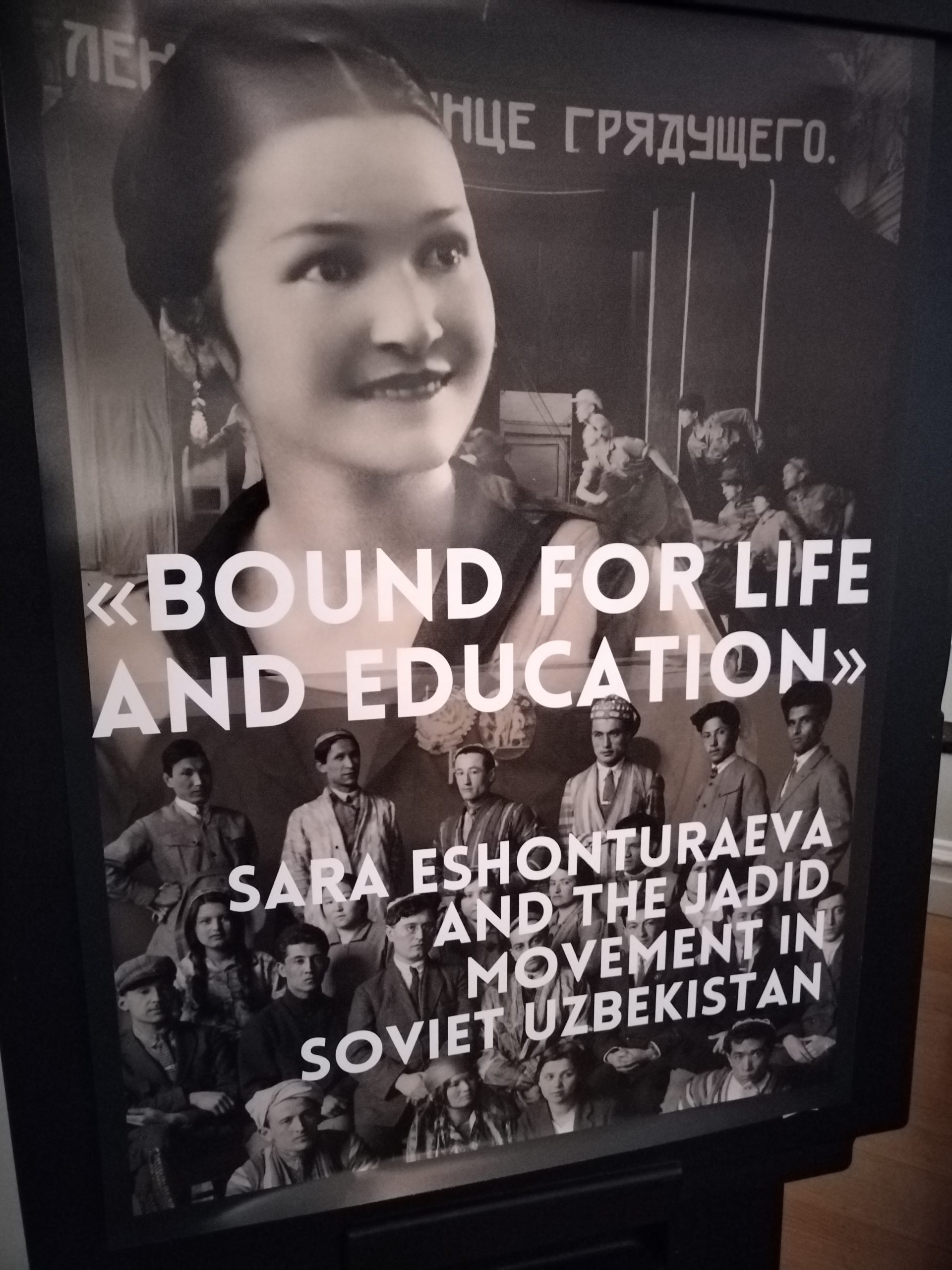LONDON(Raza Syed):The photography exhibition titled ” Bound for Life and Education: Sara Eshonturaeva and the Jadid Movement in Soviet Uzbekistan, opened at Asia House London on Wednesday. Ambassador Uzbakistan to UK,Said Rustamov, inaugurated the exhibition, which will remain open till 30th October.
Uzbek Ambassador, Said Rustamov, made an introductory speech at the opening of the exhibition: “The advanced ideas of the Jadids on national revival and self-determination, efforts to build a society based on the values of universal humanity His efforts have become an important source of inspiration for today’s modern Uzbekistan. Therefore, it is important to preserve and deeply understand historical figures like Sara Eshontorayeva. We hope that British scientists will contribute to the study of this period of changes in the history of Uzbekistan,”he added.
The exhibition featured more than 50 photographs drawn from two private collections. These powerful images, never before shown outside Uzbekistan, trace the life of Sara Ishunturaeva, Uzbekistan’s first professional actress, and the intellectual movement she was associated with.
The exhibition explores the legacy of the Moderns, a group of intellectuals, artists and political figures whose activities helped create the idea of a “modern” Uzbekistan in the 1920s, before persecution by the Soviet authorities.
Sara was educated at an institution founded by the Jadids and counted many among them as her friends. Her decades-long career, in which she dazzled audiences playing the roles of Ophelia and Desdemona in Shakespeare’s Hamlet and Othello made her one of the most celebrated actresses in the USSR. Her story, full of ecstasy and tragedy, offers a precious line of connection to the Jadids, whose own stories and contributions have been long overlooked.
Talking about the the need of exhibition, Sara Eshonturaeva’s grand daughter Nadira Khidoyatova said that we should divide the movement of the Jadids into an early period and a late period. The early period began with Behbudi, a member of the higher Muslim clergy. He was faced with the task of leading the people of Turkestan to Western values, while maintaining their national identity and adherence to Islam.
For this he did a lot of work to prove that all innovations are within the framework of Shariat, the Koran and Hadith. Late Jadidism was forced to compromise with the Soviet government, and refuse to demonstrate its adherence to Islam, and the desire to get closer to the capitalist system. Many Jadids did not agree with this and left the country, others joined the popular resistance. However, late Jadidism was headed by Fayzulla Khodjaev, and he managed to create the Bukhara Socialist Republic on the site of the Bukhara Emirate, which lasted 4 years, but during this time a lot was achieved. I also talked about the dualism that all bright personalities went through in Soviet time, both Jadids and people like my Grandmother and Grandfather, who hid a lot in themselves, and very few people know about it, because they learned to keep secrets after terrible years of repression. I told the story when I found my grandmother praying, and asked with surprise – you are a communist, do you believe in God? and she looked at me seriously and said – of course. In the end, I said that at the present time there is a need in society for the revival of the spirit and ideas of the Jadids, on the basis of which the unification of the Turkic peoples is possible. Today we can already meet people who call themselves the neo- Jadids. Jadidism can become a lighthouse of the better future of Turan and Iran.
A panel from the Department of Arts, History and Literature critically evaluated the historical significance of these images.The panel featured Nadra Khudaitova, entrepreneur and granddaughter of Sarah Ishtunturaeva Adeeb Khalid, Professor of Asian Studies and History, Carleton College Tim Smith-Lang, arts critic and Shakespeare scholar · Nilofer Edmonds, Curator of the Exhibition۔After the critical review, there was a question and answer session from the audience،Which were answered by the panelists in a very satisfactory way.
A majority of people from different walks of life living in London took an interest in the exhibition of photographs.
London winter evenings are very charming and beautiful. These kind of thought provoking events make those evenings even more sizzling.
A large number of art lovers lauded creative photography.
